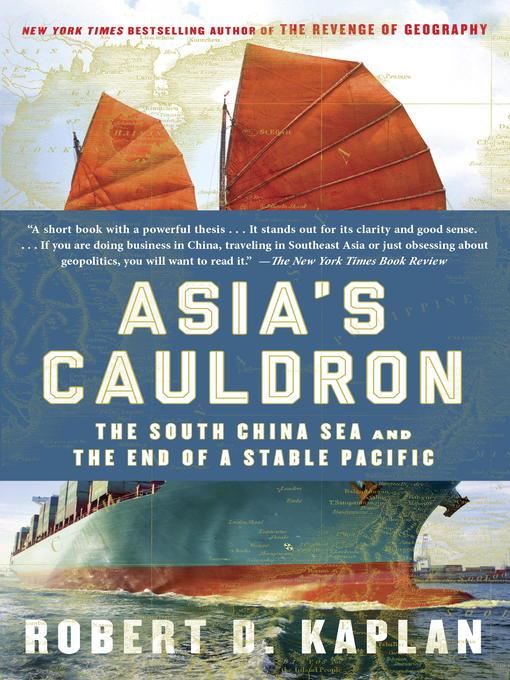
Asia's Cauldron
The South China Sea and the End of a Stable Pacific
کتاب های مرتبط
- اطلاعات
- نقد و بررسی
- دیدگاه کاربران
نقد و بررسی

March 1, 2014
A foreign policy expert looks at the major players in the Southeast Asia Pacific Rim and their nervous watching of what China will do. Atlantic foreign correspondent Kaplan (The Revenge of Geography: What the Map Tells Us About Coming Conflicts and the Battle Against Fate, 2012, etc.) frequently refers to geography as key in determining developments in the countries he addresses with his keen insight: namely, Vietnam, Malaysia, Singapore, the Philippines, Taiwan and China. Indeed, these--save the Philippines, still mired in American colonial dependency--have evolved into post-Cold War economic dynamos, with varying blends of democracy and authoritarianism. Thus, for the first time, they can "flex their muscles at sea" by making territorial claims against each other regarding the rich oil and natural gas reserves harbored among the straits and the hundreds of islands scattered throughout the area. Kaplan compares China's position amid the South China Sea grouping as akin to America's "practically sovereign" regard of the Greater Caribbean--that is, if China were finally to "Finlandize" Taiwan and replace the U.S. Navy's domination in the area. As the U.S. downgrades its naval presence and continues to be distracted by wars in Afghanistan and elsewhere, China is ramping up its military presence. Although Kaplan claims there is no "moral fury" roiling the area, his discrete breakdown of each country delineates many troubling authoritarian histories, with a blithe dismissal of democratic tenets. For example, Kaplan acknowledges the ends-justifies-the-means approach of China's Deng Xiaoping and Singapore's Lee Kuan Yew, who effected economic miracles while ruling with an iron grip. The author's considerations of jihadist insurgent threats in Indonesia and elsewhere seem tepid. An up-and-down examination in which the author claims that the future of the Pacific Rim will be decided not by what China does but by what America does.
COPYRIGHT(2014) Kirkus Reviews, ALL RIGHTS RESERVED.

February 15, 2014
Foreign affairs scholar Kaplan considers the geopolitics of the South China Sea and makes a compelling argument that the strategically important body of water is likely to become the Mitteleuropa of the twenty-first century, a flashpoint for future regional power struggles with serious international consequences. There are several reasons for this: a broad shift away from land wars in favor of less overt maritime territorial claims, China's patient but unrelenting military buildup, the sheer volume of tonnage passing through the South China Sea, and diminishing American budgets and appetite for global naval hegemony. Though much of the groundwork for his thesis was laid in Monsoon (2010), his book on the Indian Ocean, here Kaplan pays particular attention to Vietnam (the region's emergent power), Malaysia (its success story), the Philippines (its failed state), and Taiwan (its Berlin ). In support of some of his conclusions, he offers statistics and the logic of realpolitik; for others, travel-diary anecdotes or historical, even classical, analogy. The result is a riveting, multitextured look at an underexamined region of the world and, perhaps, at the anxious, complicated world of the future.(Reprinted with permission of Booklist, copyright 2014, American Library Association.)

























دیدگاه کاربران